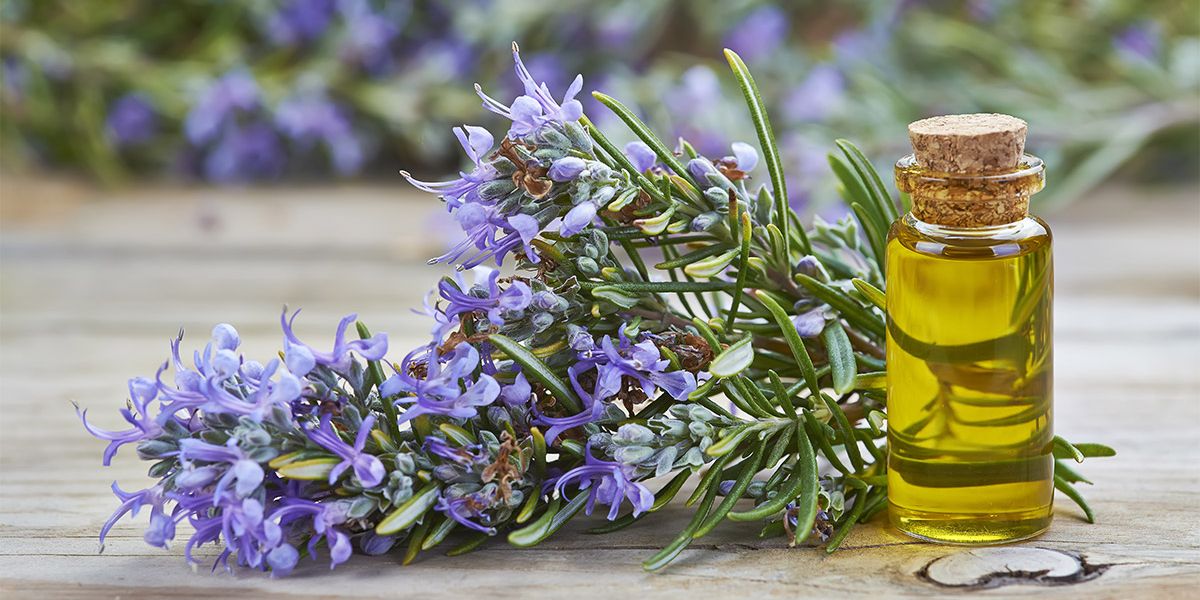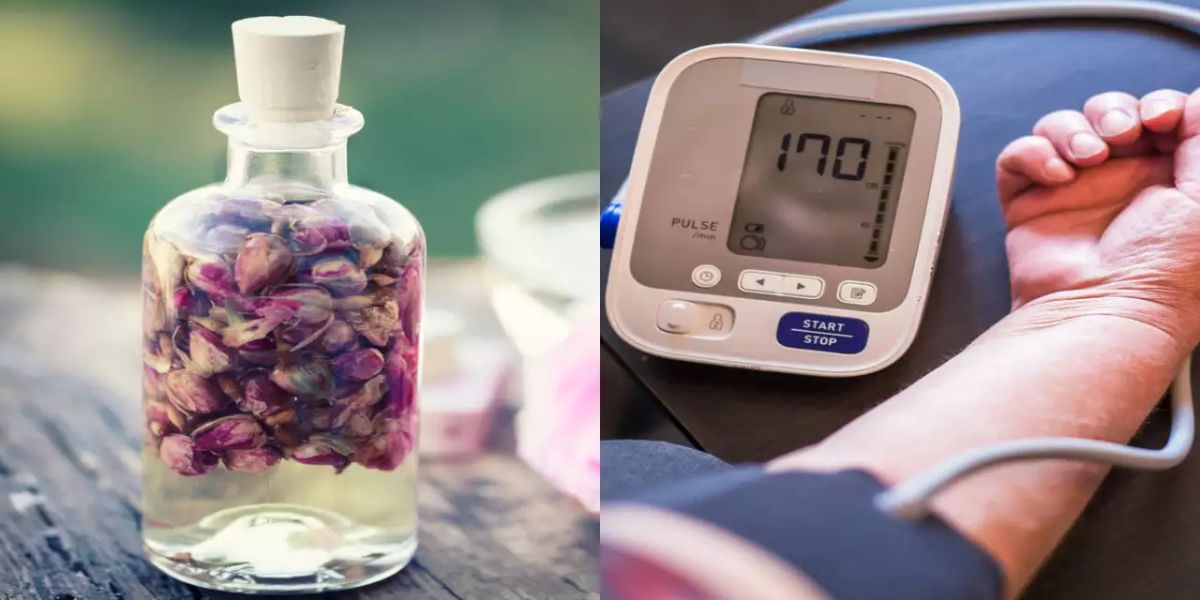Essential oils have garnered a large amount of attention in the field of alternative medicine due to the health advantages that are supposedly associated with their use. Essential oil of rosemary, in particular, has been praised for the aromatic qualities it possesses as well as the purported therapeutic powers it possesses.
Concerns, on the other hand, have been expressed regarding the possible effects it could have on blood pressure. To evaluate whether or not rosemary essential oil does cause an increase in blood pressure, let’s investigate the scientific evidence that supports this assertion.
Understanding Rosemary Essential Oil:
A fragrant evergreen herb that is native to the Mediterranean region, rosemary is the source of rosemary oil, which is extracted from the leaves of the rosemary plant, also known as Rosmarinus officinalis. It has been prized for ages due to the aromatic qualities it possesses, the culinary applications it provides, and the potential health benefits it offers. The following is an exhaustive study of rosemary oil, including a description of its advantages and many characteristics:

1. Aromatic Properties:
Rosemary oil is highly valued for its unique, woodsy aroma that also contains traces of camphor and eucalyptus. Because of its energizing aroma, which is frequently regarded as being both refreshing and uplifting, it is a sought-after option in the fields of aromatherapy and perfumery. Creating an ambiance that is stimulating, improving mental clarity, and promoting a sense of well-being can all be accomplished through the use of rosemary oil diffusers.
2. Therapeutic Benefits:
In addition to having a pleasant aroma, rosemary oil is thought to have a wide range of advantageous therapeutic effects, which can be attributed to the abundant chemical makeup of the oil. There is a possibility that rosemary oil could have the following benefits:
Enhancement of Cognitive Performance: Research has shown that inhaling the vapor of rosemary oil is connected with increased cognitive performance. This includes enhanced concentration, memory retention, and mental alertness. As a result of its stimulating aroma, which is said to encourage mental clarity and attention, it is a favorite choice among professionals and students who are looking to increase their productivity.

Anti-inflammatory: Rosemary oil includes chemicals that have anti-inflammatory qualities, such as rosmarinic acid and carnosol. Rosemary oil is used to treat joint pain and inflammation. Inflammation and discomfort caused by illnesses such as arthritis, muscular soreness, and joint pain may be alleviated with the topical application of rosemary oil that has been diluted.
Antioxidants: Carnosic acid and rosmarinic acid are two of the antioxidants that can be found in rosemary oil. These antioxidants aid in mitigating the effects of free radicals and shield cells from the damaging effects of oxidative stress. Using rosemary oil on a consistent basis may help to improve the overall health of the skin, lessen the appearance of signs of aging, and protect against damage caused by environmental factors.
Antimicrobial: Rosemary oil has been shown to possess antibacterial properties, showing that it is effective against a wide range of pathogens, including bacteria, fungi, and viruses. When diffused or utilized in natural cleaning solutions, it has the potential to help disinfect surfaces, purify the air, and enhance the operation of the immune system.
Hair and Scalp Care: Because of the alleged benefits that rosemary oil is said to have for the health of the scalp and the growth of hair, it is a common ingredient in treatments that are designed to manage hair and scalp. It is possible that stimulating circulation, strengthening hair follicles, and ultimately promoting fuller, healthier hair might be accomplished by massaging diluted rosemary oil into the scalp.
3. Chemical Composition:
The medicinal benefits of rosemary oil can be linked to the complex chemical makeup of the oil, which includes the following components:
Terpenes: Compounds such as alpha-pinene, beta-pinene, and camphene are responsible for the distinctive aroma of rosemary oil. Terpenes also have the potential to exhibit antioxidant and antibacterial effects.
Ketones: Two types of ketones can be discovered in rosemary oil: camphor and verbenone. The use of verbenone in skincare formulations is frequently recommended since it is regarded to be more gentle than camphor, which has been linked to providing stimulating effects.
Phenols: Compounds that are classified as phenols include carnosol and carnosic acid, both of which possess antioxidant and anti-inflammatory activities. In addition to preventing oxidative damage to cells, they may also be beneficial to the health of the skin.
Does the Rosemary Oil Have a Negative Impact on High Blood Pressure?

Rosemary essential oil is utilized in a variety of cosmetics and skin care products due to the beneficial effects it has on the skin. It is also used in hair care products. It has a beneficial effect on the cells in the brain, which results in a charismatic and upbeat disposition.
On the other hand, it causes a modest increase in blood pressure. Rosemary oil has the ability to lower both blood pressure and heart rate when it is used because of its diuretic effects. It does this by removing fluids from the body, which can result in dehydration. It does this by removing salt and water, which causes blood pressure levels to fluctuate.
- Rosemary essential oil is colorless and fragrant. Furthermore, the oils are beneficial to the body; nevertheless, if ingested or utilized in high quantities, exercise caution as they may cause mood changes and insomnia. It is observed that the more fluid there is, the greater the pressure on the blood vessels and the higher the blood pressure.
- Rosemary essential oil momentarily elevates blood pressure, causing increased blood flow to regulate body temperature. Finally, it lowers blood pressure, making a person feel better.
- Some claim that rosemary essential oil does not consistently raise blood pressure. While some studies have discovered that breathing rosemary oil vapor can momentarily raise blood pressure and heart rate, these effects are usually mild and fleeting.
There is evidence that rosemary essential oil can lower blood pressure. Its diuretic properties promote fluid evacuation. Furthermore, rosemary oil has been shown to have vasodilatory qualities, which means it can relax blood vessels and increase blood flow, perhaps enhancing its antihypertensive benefits.
According to Dr. S.A. Rehman, General Medicine, Associate Professor, Noida International Institute of Medical Sciences and Hospital, NIU, “rosemary essential oil may temporarily raise blood pressure in some people, but its overall impact on cardiovascular health is nuanced.” When taken in moderation and as part of a healthy lifestyle, rosemary essential oil can provide a variety of advantages, from skincare to mood enhancement.
Individuals with pre-existing cardiovascular issues should exercise caution and seek medical advice before using rosemary oil or any other herbal therapies. Moderation is key with any essential oil or herbal treatment; understanding the science behind rosemary essential oil and its effects on the body allows for informed judgments, promoting safe and responsible use of its advantages.”
Understanding Blood Pressure

The beating of our heart generates pressure, which enables our blood to move through our circulatory system and provide oxygenated blood to our organs and tissues. This is made possible by the beating of our hearts. This is what we refer to as the blood sugar level.
The systolic blood pressure and the diastolic blood pressure are the two forces that are responsible for the creation of blood pressure. A measurement of the pressure in your arteries that occurs when blood is pumped out of the heart and into the arteries is called systolic pressure. During the time that your heart is at rest between beats, the pressure in your arteries is measured by the diastolic pressure.
The following are the several types of blood pressure:
- The systolic blood pressure must be less than 90, and the diastolic blood pressure must be less than 60.
- The systolic blood pressure should be less than 120, and the diastolic blood pressure should be less than 80.
- The systolic blood pressure should be between 120 and 129, and the diastolic blood pressure should be less than 80.
- If your systolic blood pressure is between 130 and 139 or your diastolic blood pressure is between 80 and 89, you are considered to have stage 1 high blood pressure.
- When a person’s systolic blood pressure is 140 or higher or their diastolic blood pressure is 90 or higher, they are considered to have stage 2 high blood pressure.
Potential Dangers Associated with Unusual Blood Pressure
It is not always the case that elevated or low blood pressure is an indication of a health concern; however, persistently high blood pressure might actually lead to other health problems.
Hypertension, also known as high blood pressure, is a condition that causes the heart to work harder, but in a less efficient manner, which ultimately results in damage to the arteries and blood vessels. According to the American Heart Association, high blood pressure is referred to as the “silent killer” and is a facilitator of the domino effect since it can lead to a number of different health concerns for a number of different people. A stroke, vision loss, heart failure, heart attack, and kidney illness are some of the conditions that fall within this category.
When your blood pressure drops quickly or if it causes symptoms such as the following, many medical professionals agree that low blood pressure, also known as hypotension, is regarded to be a health risk:
- Nausea
- Feelings of exhaustion
- Feeling lightheaded
- The vision is hazy
- Unable to concentrate well
- A state of confusion
- A scanty pulse
- Not taking deep breaths
Hypotension can be brought on by a number of different illnesses, including but not limited to dehydration, blood loss, endocrine issues, allergic reactions, infections, heart difficulties, and a deficiency in nutrients that are essential for the synthesis of red blood cells.
Uses and Applications of Rosemary Oil

Rosemary oil has a wide range of uses and applications, including aromatherapy, personal care, and household cleaning. Here’s a detailed look at its various applications:
1. Aromatherapy
It is the use of essential oils to enhance physical and psychological well-being through inhalation or topical application. Rosemary oil is highly regarded in aromatherapy due to its stimulating scent and potential therapeutic benefits. Here are some common methods to use rosemary oil in aromatherapy:
- Diffusion: Use a few drops of rosemary oil in an essential oil diffuser or humidifier to fill the room with an uplifting aroma. Diffusing rosemary oil can help with focus, attention, and mental clarity, making it an excellent choice for study or work settings.
- Inhalation: Inhaling the aroma of rosemary oil directly from the bottle or applying a drop to a tissue will provide immediate relief from exhaustion, lethargy, and mental fog. Simply take a deep breath and let the invigorating scent of rosemary oil refresh your senses.
2. Personal Care
Rosemary oil has several benefits for skincare, hair care, and hygiene. Its antioxidant, antibacterial, and anti-inflammatory effects make it an important ingredient in many cosmetic and grooming products. Here are a few methods to use rosemary oil in your personal care routine:

- Scalp & Hair Care: To increase circulation, nourish the hair follicles, and encourage hair growth, mix a few drops of rosemary oil with a carrier oil such as coconut or jojoba oil and massage into the scalp. You can also add rosemary oil to your shampoo or conditioner to improve scalp health.
- Facial Care: Dilute rosemary oil with a carrier oil and apply it to the skin to reduce inflammation, combat acne-causing bacteria, and promote a clear complexion. Rosemary oil can also be used to make DIY face masks, cleansers, and toners because of its cleansing and rejuvenating properties.
- Body Care: Add rosemary oil to homemade body scrubs, lotions, or bath oils to renew the skin, promote circulation, and relieve muscle stress. Its invigorating perfume can elevate your spirits and stimulate your body during self-care activities.
3. Household Cleaning
Rosemary oil has natural antibacterial and disinfecting characteristics, making it a great option for generating eco-friendly cleaning solutions. Here are some methods to utilize rosemary oil for home cleaning:
- Surface Disinfection: Create a multipurpose disinfectant spray by combining rosemary oil, water, vinegar, and a dab of liquid detergent. Use it to clean worktops, kitchen appliances, bathroom fixtures, and other household surfaces. The antibacterial qualities of rosemary oil assist in eradicating germs and odors, leaving your home smelling clean and fresh.
- Air Freshening: Combine a few drops of rosemary oil with a spray bottle of water to create a natural air freshener that will purify the air and neutralize undesirable odors. Spritz the rosemary-infused mist into any space to create a refreshing and uplifting ambiance.
- Laundry Care: Add a few drops of rosemary oil to your washing machine or dryer to make your laundry smell better. Rosemary oil’s aromatic fragrance can leave a delicate, herbal perfume on your clothes, towels, and linens, making laundry a sensory delight.
4. Culinary Uses:
Rosmarinia oil is valued for its culinary diversity, as well as its fragrant and medicinal benefits. It may be used to flavor a wide range of meals, from salty to sweet, giving your favorite recipes depth and complexity. Here are some ways you can use rosemary oil in cooking:
- Seasoning: Add rosemary oil to roasted vegetables, grilled meats, poultry, fish, soups, stews, and sauces. Its powerful flavor complements a broad variety of ingredients, increasing the taste and aroma of savory foods.
- Marinades and Dressings: Add rosemary oil to homemade marinades, vinaigrettes, and dressings to give your dishes a distinct herbal flavor. Combine rosemary oil, olive oil, garlic, lemon juice, and other herbs and spices to make a fantastic marinade or salad dressing.
- Baking: For a gentle hint of herbal scent and flavor, add a drop or two of rosemary oil to baked products including bread, focaccia, biscuits, scones, and cookies. Rosemary oil can be used in both sweet and savory recipes, giving old favorites a distinctive twist.
To summarize, rosemary oil is a versatile essential oil with numerous uses and applications, including aromatherapy, personal care, household cleaning, and culinary pursuits. Whether you want to improve your health, beautify your environment, or elevate your culinary creations, rosemary oil is a natural and aromatic answer to a variety of needs.











